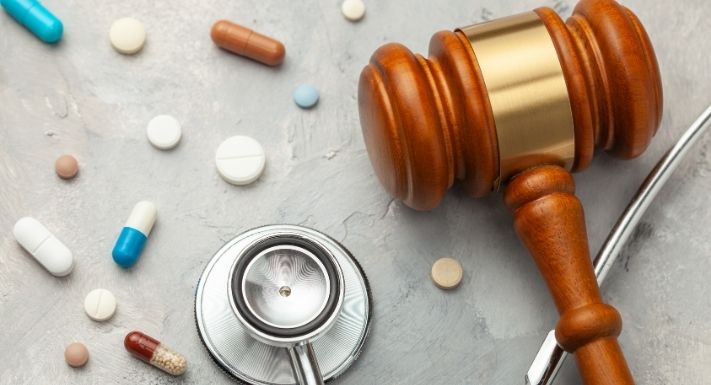
What Is Considered Obstetric Malpractice
November 24, 2020
How To Prove Age Discrimination in the Workplace
December 3, 2020If a medical professional works at a formal practice in the United States, they almost always need to register with the state and provide adequate certificates and documentation. This means most doctors and pharmacists have the appropriate medical training and can perform the full extent of their expected duties. Yet, despite these safeguards, there are still instances of sub-standard medical care that leave patients with lasting injuries. Here is what you need to prove pharmaceutical malpractice.
What Is Pharmaceutical Malpractice?
Pharmaceutical malpractice is a specific kind of medical malpractice wherein a doctor or pharmacist makes a careless or incompetent mistake with a patient’s medication. In the medical process, doctors ascertain relevant medical histories, assess physical health, pull together a diagnosis, and create a treatment plan. The treatment plans typically involve a prescription that patients must order through a pharmacist. Though medical professionals complete this process dozens of times each day, there are opportunities for mistakes to occur.
Who Makes the Mistake?
Pharmaceutical malpractice can occur in two major ways: with the physician or with the pharmacist. Both of these people are responsible for practicing the utmost attentiveness and caution when giving patients their treatment. A physician can botch the medication by prescribing the wrong dosage or the wrong medication altogether. These are both grounds for a potential case. However, with a pharmacist, there are more nuanced issues at hand.
Pharmacists work day in and day out around medicine of all kinds, from pills to liquids to aerosolized medications. Their entire work is collecting, sorting, and distributing medicine. However, this increases the ways they can err with your scripts. Pharmacist malpractice includes filling the wrong prescription, providing the incorrect dosage of the medicine, over or under-filling the prescribed quantity, or giving you someone else’s medicine. It may also involve failing to advise you on medicinal effects, printing improper labels with inadequate instructions, and providing defective drugs. Each of these instances may be enough for a case.
Knowing who made the error will change how you form your legal case. So, be sure whether the problem happened at the doctor’s office or the pharmacy before leveling serious accusations. The medical professional in question will change how you structure your arguments and what proof you present. If you are not sure where the mix-up occurred or what exactly to call your situation, reach out to a lawyer like the ones on our team at Rossman Law Group for a consultation.
What Proof Do You Need?
Every legal case rests upon the solid logical progression of an argument and presentation of irrefutable facts. The proof is the foundation of your pharmaceutical malpractice claim, so you must put all your information together to effectively argue your position. When you collect and present this proof, it is best to have an attorney aid you in the process.
Personal Testimony
The first part of your proof lies in your lived experiences. Obviously, if you came to no harm, you would not be pressing charges. So, your personal testimony lays the groundwork for all the other evidence you need. Your testimony will describe your experiences with your physician or pharmacist, explicating the encounter you shared. Your memories may fade over time, so be sure to write down everything you can remember about the conversation and situation while it is still fresh. The more details, the better. With ample information, you can present everything to an attorney to sort it all out.
Proof of Injury
You originally sought medical care due to a condition or issue that you had been experiencing. Then, after finding a solution, you had hope that your ailment would fade with the proper treatment. However, the medication you received caused further harm or allowed the initial condition to worsen. Proving this is critical to the success of your case. If you cannot show that your pre-existing condition deteriorated or that you experienced new symptoms and injuries, then your case will not stand.
Medical Documents
Medical documents are essential in the legal process because they provide hard evidence that shows where you went, who you met with, and at what time the situation happened. Be sure to bring documentation detailing both your visits to the physician and the pharmacist. Because pharmaceutical malpractice revolves around medication, you must show pertinent information about the script itself. This means bringing in your prescription from the doctor, the medication bottle from the pharmacist, and receipts from both the doctor’s office and pharmacy. All these documents will prove the who, what, when, where, and how of the situation. Make sure to also furnish records describing any later medical visits for the worsening conditions or new ailments.
Expert Witness
An expert witness is one of the last critical pillars of your legal case. This person will either be a doctor of the same specialty as your attending physician or a pharmacist of the same training as yours. This medical professional will corroborate your interpretation of the medical care by showing how it was ineffectual, harmful, and inappropriate compared to what an average physician in their specialty would do. An expert witness can lay out what the standard of care by a competent medical professional would entail in your situation, therein showing how your experience was sub-par.
Professional Legal Guidance
At the end of the day, your case is your story. No one can take your experiences away from you and discredit what happened to you. But you will need legal aid along the way to make sense of your case. Expert legal guidance will coach you on what you must do and say to win a case in court. As you go along the process, they will file the court documents, structure your arguments, and advocate for you every step of the way. Be sure to find a lawyer who is proficient in medical malpractice or personal injury to ensure you receive the quality aid you deserve.
Be sure to know what you need to prove pharmaceutical malpractice before taking legal action on your own. It is best to do so with a trained legal professional at your side. If you have any questions about pharmaceutical malpractice or want to pursue legal options for your case, reach out to a medical malpractice attorney in Boise, ID, like those on our team at Rossman Law Group.






